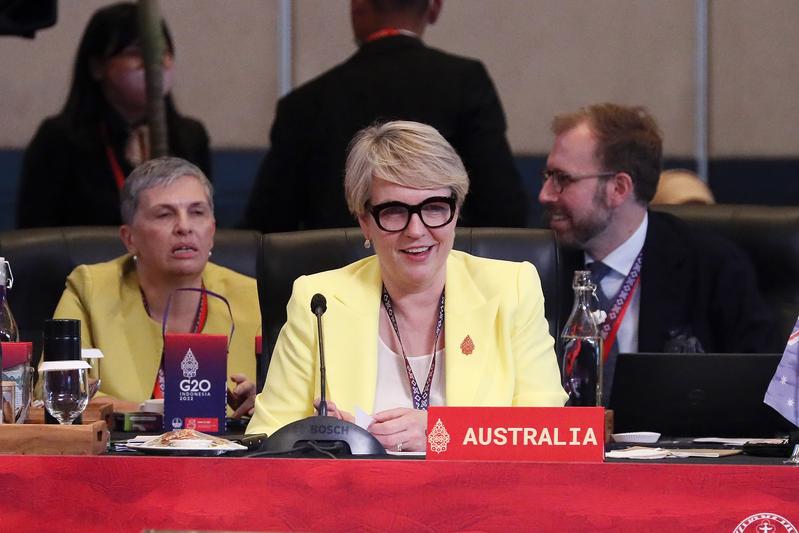 Australian Environment and Water Minister Tanya Plibersek attends the opening session of the G20 Environment and Climate Ministerial Meeting in Nusa Dua, Bali, Indonesia, Aug 31, 2022. (MADE NAGI / POOL PHOTO VIA AP)
Australian Environment and Water Minister Tanya Plibersek attends the opening session of the G20 Environment and Climate Ministerial Meeting in Nusa Dua, Bali, Indonesia, Aug 31, 2022. (MADE NAGI / POOL PHOTO VIA AP)
MELBOURNE - Australia will set up a national legal framework to strengthen protection for Aboriginal cultural heritage, Environment Minister Tanya Plibersek said on Thursday, following a review of mining standards after Rio Tinto's destruction of sacred rock shelters for an iron ore mine.
Rio escaped broader government sanctions in the response to a 16-month parliamentary inquiry into how it destroyed the Juukan Gorge rock shelters in mid 2020, which was published on Thursday.
Metals and mining company Rio Tinto escaped broader government sanctions in the response to a 16-month parliamentary inquiry into how it destroyed the Juukan Gorge rock shelters in mid 2020, which was published on Thursday
Both Environment Minister Tanya Plibersek and Prime Minster Anthony Albanese noted the global miner had not broken any laws, and instead blamed an unfit system of protection.
ALSO READ: Landmark report: Australia facing more heat, droughts
Traditional owners expressed anger on Thursday that they had not been consulted by the new government on its response.
"This was not an isolated mistake or an example of one company going rogue," Plibersek said on Thursday, speaking in parliament. "What's clear from this report is that our system is not working," she said.
The government had accepted all but one recommendation out of the eight from last year's parliamentary inquiry into the destruction of the historically and culturally significant site at Juukan Gorge in Western Australia, Plibersek told parliament.
ALSO READ: Australia's climate policies don't match its big talk at COP27
The decision on whether the final responsibility for heritage protection should sit with the Indigenous Affairs Minister or the Environment Minister is still being assessed, Plibersek said.
The government stopped short of backing a recommendation in the interim report that Rio pay restitution for its damage. It said instead it would "consider the issues raised" regarding compensation as it develops the new national framework legislation.
Prime Minister Albanese alluded to reasons Rio was not given greater sanction on social media on Thursday.
"Juukan Gorge, a site of huge significance to First Nations people, was destroyed two years ago. But no laws were broken," he posted on Twitter. "It's wrong. So we're changing it."
Rio did not have an immediate comment.
Widespread outrage at the destruction of the site put a focus on industry practices and cost the jobs of Rio Tinto's then-chief executive and two other senior leaders and led Chairman Simon Thompson to step down in May.
ALSO READ: Australia's trade agreement with UK moves closer to implementation
It also spurred other big miners in Western Australia to overhaul their agreements with traditional owners.
The rock shelters had showed evidence of human habitation dating back 46,000 years into the last Ice Age and the destruction caused deep distress to the site's traditional owners, the Puutu Kunti Kurrama and Pinikura peoples.
The traditional owners said they were angry and disappointed that they had not been consulted about the government's response.
"All of this started with the destruction of our cultural heritage, everyone keeps on telling us they are sorry about it, but actions speak louder than words," the PKKP Aboriginal Corporation said in a statement.
"We have tasted the devastation and we know what needs to be done," it said, without elaborating.


